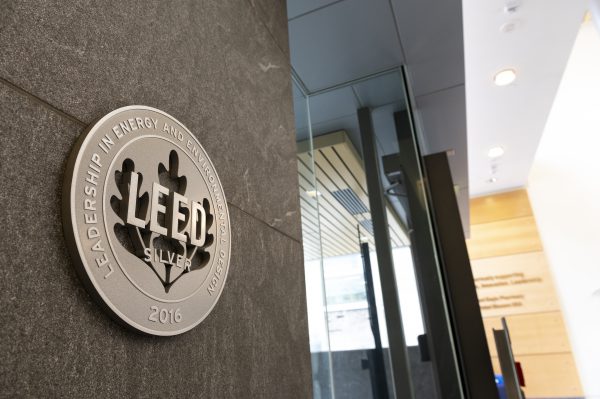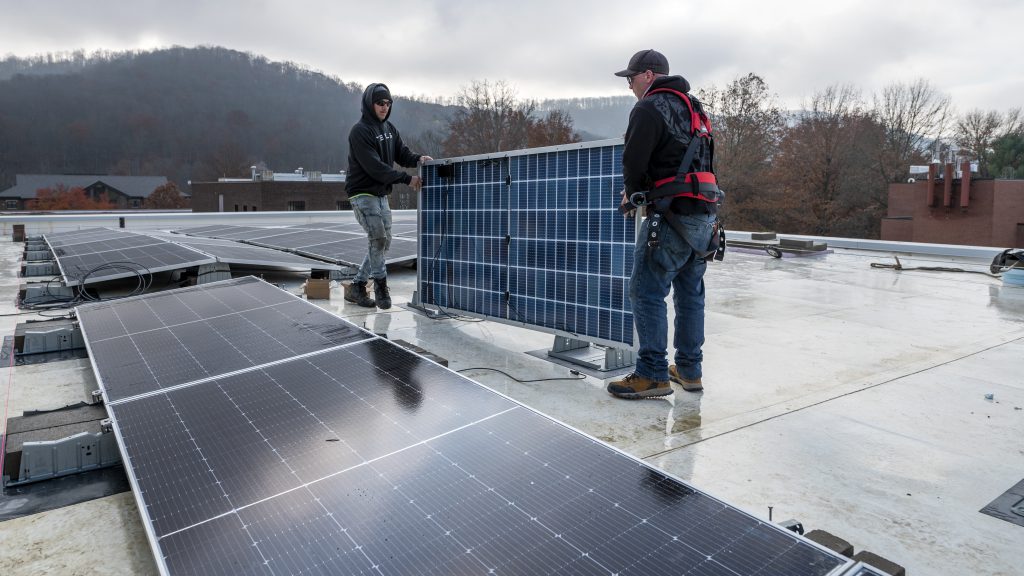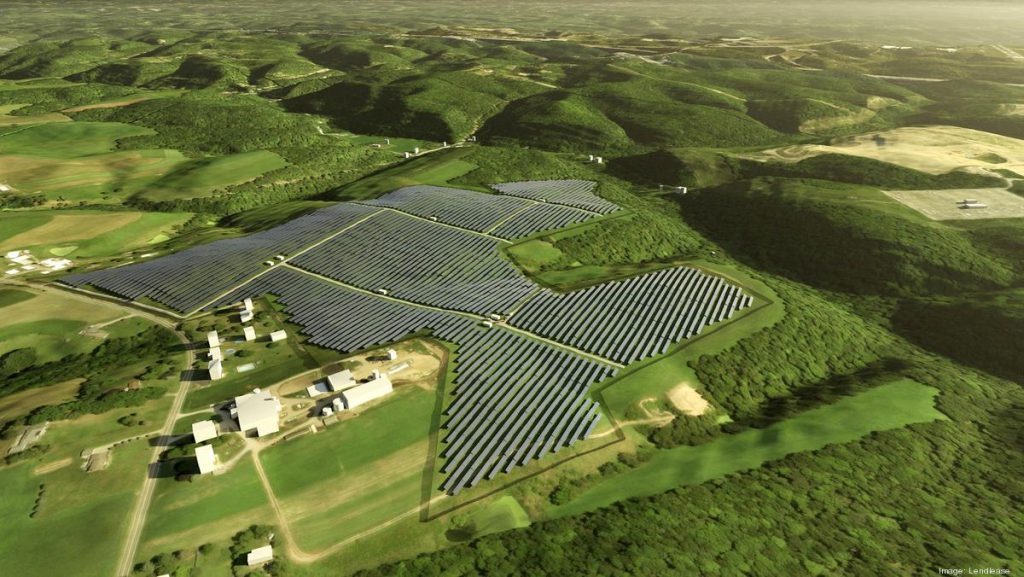Bradford Campus

The University of Pittsburgh at Bradford (Pitt Bradford) is a regional campus nestled in the picturesque landscape of northwestern Pennsylvania. Despite its rural setting, Pitt Bradford is at the forefront of sustainability initiatives, recognizing the importance of environmental stewardship in both local and global contexts. The campus has implemented various sustainability programs aimed at reducing its carbon footprint, conserving natural resources, and promoting eco-friendly practices among students, faculty, and staff. These initiatives not only contribute to a healthier environment but also serve as educational opportunities for the campus community to learn about sustainable living and develop skills for addressing environmental challenges. Given the campus’s location amidst the natural beauty of the Allegheny Plateau, fostering sustainability is not only responsible but also essential for preserving the region’s ecological integrity for future generations.

Achievements

Green Campus

LEED Buildings
Sustainability Committee
The Pitt Bradford Sustainability Committee, comprised of dedicated individuals, plays a pivotal role in driving forward sustainable practices and initiatives within the campus community.
- Matt Kropf, Chair, Director of Energy Institute
- Stephen Robar, Director of Environmental Studies
- Donald Ulin, Director of English
- Ovidiu Fantescu, Director and Associate Professor of Environmental Science
- Julia Morgan, Assistant Professor of Philosophy
- Denise Piechnik, Director of Biology Program
- Chris Clifford, Associate VP of Business Affairs & Director of Auxiliary Services
- Jack Rae, Director of Facilities
Notable Achievements in Sustainability
Bradford Campus is taking significant strides towards sustainability, evident through its commitment to environmental stewardship.

The Bradford campus published their first Greenhouse Gas (GHG) inventory in 2024. This FY19 & FY22 Bradford GHG inventory provides valuable insights into the campus’s carbon footprint, sets a FY19 baseline and serves as a foundation for implementing effective emissions reduction strategies.

Bradford Campus has embraced solar energy as a key component of its sustainability efforts. The installation of rooftop solar panels on prominent campus buildings demonstrates this commitment. Notably, the George B. Duke Engineering and Information Technologies Building harnesses solar power to meet 40% of its energy needs, while also pursuing LEED certification for its sustainable design. Furthermore, the Richard E. and Ruth McDowell Sport and Fitness Center features its own solar array, further contributing to the campus’s renewable energy portfolio and reducing reliance on conventional power sources.

Through these initiatives, Bradford Campus is not only reducing its environmental impact but also serving as a model for sustainable practices within the academic community. By prioritizing sustainability in infrastructure and operations, the campus is actively advancing towards a greener, more environmentally responsible future.
Pitt-Bradford continues to distinguish itself as a leader in sustainability, earning recognition in the esteemed 2024 Princeton Review Guide to Green Colleges. For the second consecutive year, the University of Pittsburgh at Bradford has secured its position among the nation’s top environmentally responsible colleges, as highlighted by The Princeton Review’s comprehensive assessment. The university’s inclusion in the guide was based on a meticulous survey of college administrators conducted during the 2022-23 academic year. The Princeton Review scrutinized over 25 survey data points to identify the 522 schools featured in the guide, with Pitt-Bradford standing out for its notable sustainability endeavors. These efforts include the establishment of a dedicated sustainability committee, allocating 51% of its food budget towards local and organic produce, and providing transit passes and secure bicycle storage facilities.

Pitt-Bradford demonstrates its commitment to sustainability through conscientious paper procurement practices, as evidenced by its TreeFree paper purchases. In Fiscal Year 2019, the university acquired 3,200 reams of Boise Uncoated Freesheet, containing 0% recycled content, alongside 1,300 reams of TreeZero paper, boasting 100% recycled content. While this cumulative paper usage amounted to 31 metric tons of carbon dioxide equivalent (MT CO2e), representing 0.32% of the total FY19 greenhouse gas (GHG) emissions, it also underscored the university’s dedication to reducing its environmental footprint. Pitt-Bradford made significant strides in mitigating its paper-related environmental impact. By predominantly opting for TreeZero paper, comprising 100% recycled content, the university purchased 1,600 reams, resulting in a notable decrease in carbon emissions to 11 MT CO2e. This reduction, equivalent to 0.15% of the total FY22 GHG emissions, exemplifies Pitt-Bradford’s proactive approach to sustainability and underscores its commitment to fostering environmentally responsible practices campus-wide.
Sustainability on Campus

Indoor storage for bicycles: Recognizing the importance of sustainable transportation options, Bradford Campus provides indoor storage facilities for bicycles. These secure storage areas not only encourage students to choose eco-friendly commuting methods but also alleviate concerns regarding bike theft and weather damage. By offering convenient and safe bike storage options, the university promotes active lifestyles while reducing carbon emissions associated with traditional transportation methods.

Panther Pantry: The Panther Pantry initiative addresses food insecurity among students while also promoting sustainability through waste reduction. By providing access to nutritious food staples and essentials, the pantry helps alleviate financial burdens for students while minimizing food waste on campus. Additionally, the pantry may incorporate sustainable practices such as sourcing locally grown produce or offering eco-friendly packaging options, further aligning with the campus’s commitment to environmental stewardship.


Public transit passes for students: Bradford Campus encourages sustainable transportation alternatives by providing students with public transit passes. By offering convenient access to public transportation, the university reduces reliance on single-occupancy vehicles, thereby lowering carbon emissions and traffic congestion. This initiative not only promotes environmental sustainability but also enhances accessibility for students, facilitating campus mobility while reducing their ecological footprint.
51% local and organic food: Emphasizing the importance of sustainable food practices, Bradford Campus ensures that over half of its food offerings consist of locally sourced and organic options. This commitment to sustainability extends beyond campus dining facilities and aligns with broader environmental goals. By prioritizing locally sourced produce and organic ingredients, the university supports local farmers, reduces transportation-related emissions, and promotes healthier, environmentally conscious dining choices among students.

Outdoor education/laboratories: Leveraging its expansive 481-acre property, Bradford Campus provides outdoor education and laboratory facilities to promote environmental stewardship. These outdoor spaces serve as immersive learning environments where students can engage in hands-on activities, research projects, and experiential learning opportunities focused on environmental sustainability. By integrating outdoor education into the curriculum, the university instills a deeper appreciation for nature and fosters a sense of responsibility towards preserving natural resources among students.

Tree Campus designation: Bradford Campus’s Tree Campus designation underscores its commitment to preserving and enhancing campus green spaces. This recognition acknowledges the university’s efforts in promoting tree conservation, campus landscaping initiatives, and sustainable forestry practices. By maintaining a vibrant campus arboretum and implementing tree planting programs, the university not only enhances the aesthetic appeal of the campus but also contributes to environmental sustainability by sequestering carbon dioxide, providing habitat for wildlife, and improving overall air quality.
LEED Buildings

LEED BUILDINGS
These LEED-certified structures showcase the campus’s dedication to energy efficiency, resource conservation, and occupant well-being. Designed with sustainable features like energy-efficient lighting, water-saving fixtures, and renewable materials, these buildings serve as shining examples of environmentally responsible construction. Beyond reducing environmental impact, these LEED buildings provide a healthy and comfortable environment for students, faculty, and staff to learn, work, and thrive. By investing in LEED-certified infrastructure, Pitt Bradford demonstrates its leadership in sustainable campus development and its dedication to creating a greener future for the university community and beyond.
- Alexander House earned silver-level LEED certification from the U.S. Green Building Council: https://www.upb.pitt.edu/posts/news/alexander-house-earns-silver-level-leed-status

- George B. Duke Engineering and Information Technologies Building is expected to achieve silver-level or higher rating from the Leadership in Energy and Environmental Design (LEED) certification from the U.S. Green Building Council: https://www.bradfordera.com/business/public-invited-to-duke-building-dedication/article_01d49d6f-adcb-58fc-931a-41b295d49f50.html